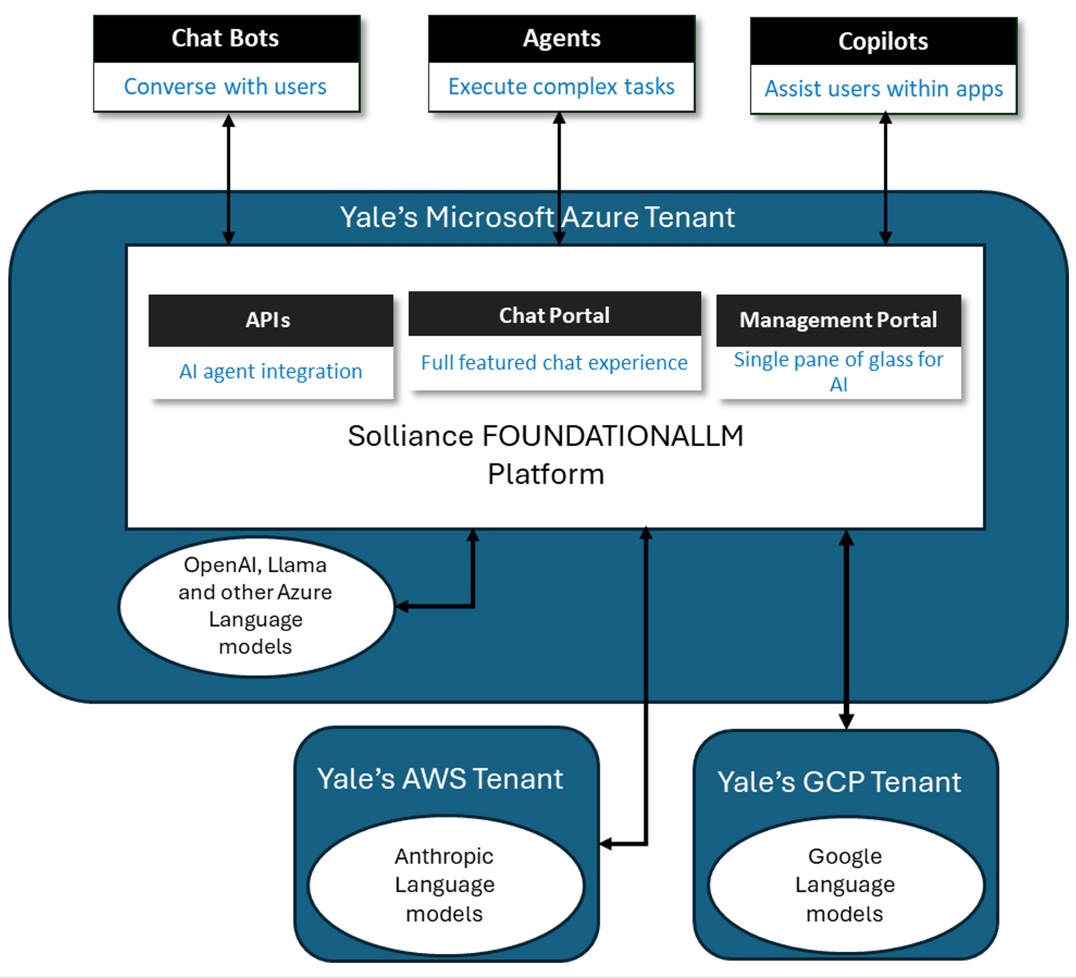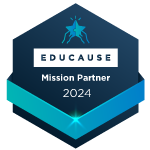Yale University is engaging with Solliance and Microsoft to develop a multimodal generative artificial intelligence tool for all members of the university community.
Yale University has embarked on a journey to integrate access to generative artificial intelligence (GenAI) tools into the academic, research, and administrative fabric of the institution. This move aligns with the strategic recommendations of the university's AI task force and reflects the institution's unwavering commitment to fostering innovation, enhancing the learning experience, and maintaining its position at the forefront of academic excellence.
Yale Task Force on AI
The Yale task force on AI, led by the Office of the Provost, was assembled, and it included a group of faculty and campus leaders from across the university. In the spring of 2024, the task force worked with AI panels from the university's schools and experts in education, collections, clinical practice, and operations. The task force report that followed in June 2024 emphasized the need for equitable access to a leading, multimodal GenAI tool for all members of the Yale community—faculty, staff, and students. The task force recommended procuring or developing a GenAI tool that prioritizes the privacy of individuals' and the university's data. Given the rapid evolution of AI technology, the taskforce took a flexible approach, which allowed the university to make multiple tools available or deploy adaptable tools based on Yale's evolving needs.
Aspirations for a Generative AI Services Platform
At Yale, our vision for the GenAI Services platform is guided by the following set of aspirations, which reflect our commitment to inclusivity, excellence, and innovation:
- Equitable access. Ensure that all members of the Yale community have access to GenAI tools.
- Diverse model access. Provide access to a variety of GenAI models to cater to different needs.
- Vendor agnosticism. Avoid lock-in with any single vendor to maintain flexibility and leverage the best available technologies.
- Cost-effectiveness. Avoid the prohibitive costs associated with developing and maintaining a custom platform.
- User-friendly experience. Design an accessible and intuitive user experience that minimizes the need for technical support.
- Evolution with industry. Implement an enterprise solution that can evolve with the rapidly changing AI industry.
- Privacy and security. Prioritize the privacy and security of user data.
Solution Strategy
To realize our aspirations, we conducted a thorough evaluation of potential vendors that could align with one of our Cloud partners. Solliance and Microsoft Azure emerged as the best fit for our needs. Their engagement with us allows us to start from a robust foundation and scale up as required, maintaining control over costs and enabling flexibility to pivot from one solution to another as needed. Our focus will be on training and supporting our users—students, faculty, and staff—ensuring that they can leverage these new tools effectively. We kicked off our project this past summer and went live with access to the OpenAI GPT-4o large language model with the Assistance API for the start of the fall semester. More information about the platform, which we have branded as Clarity, can be found on the AI at Yale web page.
Now that the Clarity platform is available to the community, efforts are underway to get faculty, students, and staff comfortable enough with the environment to begin using it. Training sessions have been conducted across campus, and the community has begun adopting the tool.
Rollout Plan and Roadmap
Rollout
The rollout of our GenAI Services platform will be guided by a strategic plan for continuous improvement and community involvement. This includes the following:
- Advisory team. The Office of the Provost is leading an advisory team to oversee the evolution of the platform.
- Cost management. We will define methods to estimate consumption costs and determine the feasibility of cost-recovery mechanisms.
- Usage policies. Terms of use will be clearly defined, along with a process for requesting access to tools and determining if an approval process is necessary.
- Vendor engagement. Our collaborative work with Solliance and Microsoft will be key in continuously improving our services.
- Communications plan. A comprehensive rollout and communications plan will keep the Yale community informed about upcoming developments, including training opportunities.
Roadmap
Based on feedback and directions from the community, we are prioritizing which features to consider working on with our vendors. We recently released image creation capabilities with DALL-E 3 and enabled file uploads via OneDrive. Every release also has accessibility enhancements, ensuring we stay true to our charge of having an equitable experience for the Yale Community. We plan to roll out the following services on our platform over the next few months:
- Introduce Anthropic Claude 3.5 Sonnet, Microsoft Azure OpenAI GPT-4o Mini, chat export features, and foundational work to support the governed creation of custom bots and enable API access.
- Make Azure OpenAI GPT-o1 available on a limited basis, and further develop the infrastructure for managing custom bots and APIs.
- Introduce text-to-speech capabilities and Google Gemini 1.5 Pro and make custom bot creation and API access broadly available.
Figure 1 illustrates the planned future state of the Clarity platform and the desired capabilities for the Yale community. We are working toward a platform where community members can, for example, leverage self-service tools to build chatbots for specific domains of knowledge, agents as tutor bots for courses, or copilots for assistance with applications or processes they own with a fit-for-purpose language model of their choosing.

Conclusion
The integration of GenAI tools into Yale University's ecosystem is beginning to achieve some of the directions set by the AI task force. By providing equitable access to these technologies, we are not only enhancing the learning experience but also empowering faculty and staff at Yale with tools that could potentially drive innovation and efficiency throughout the university.
As we embark on this transformative journey in collaboration with Solliance and Microsoft, we are looking forward to getting feedback from and engaging with the Yale community, which, coupled with the strategic guidance from our AI task force, will ensure the successful implementation and continual evolution of our GenAI Services platform. Together, we hope to navigate this rapidly changing landscape, harnessing the power of generative AI to support our mission.
 EDUCAUSE Mission Partners
EDUCAUSE Mission Partners
EDUCAUSE Mission Partners collaborate deeply with EDUCAUSE staff and community members on key areas of higher education and technology to help strengthen collaboration and evolve the higher ed technology market. Learn more about Microsoft, a 2024 EDUCAUSE Mission Partner, and how they're partnering with EDUCAUSE to support your evolving technology needs.
Hadar Call is Associate CIO for Enterprise Services and Platforms at Yale ITS.
Frank Mathew is Deputy CIO at Yale ITS.
© 2024 Microsoft.
